It’s only natural to wonder about the qualifications of individuals offering us any type of advice and chicken care advice is no exception. With all the talk of “natural chicken keeping” in the past few years, it makes sense to ask questions about what it means to raise chickens naturally, where the concept for raising chickens naturally came from and who is qualified to tell us how to employ these novel methods properly in our backyard flocks.
I am often asked questions about the use of apple cider vinegar, garlic, herbs, diatomaceous earth and other modalities considered holistic, natural and/or herbal, which makes me wonder what it really means to raise chickens naturally. What is holistic chicken-keeping? What does it mean to be an herbalist? You know from my blog articles about pumpkin seeds, apple cider vinegar, oregano oil, nesting box herbs and diatomaceous earth that I have dug deep to get the straight-dope on whether these things do what proponents claim they do for our chickens or whether we are being led down the garden path by blind Sherpas and that digging continues.
It has long troubled me that specious claims are being disseminated about various natural chicken-keeping practices by individuals unqualified to do so, muddying the holistic waters and diluting the practice by failing to communicate proper methods of use. These concerns have led me to bring my questions to the woman who pioneered the natural chicken-keeping movement: Susan Burek. Susan is a highly regarded, extensively trained and experienced herbalist, and decades-long poultry-keeper who will set the record straight about natural chicken-keeping in a series of articles for us. In this article, I have asked her to answer a few of my questions, to share her background and explain how she conceived the practice of raising chickens naturally.Q & A with Susan Burek
Q: What is natural chicken keeping?
A: To me, raising chickens naturally means addressing health proactively and tackling illness and disease with herbal support. Prevention is not a magic bullet. Natural chicken keeping does not mean that conventional chemical medicine (allopathic) is precluded- there is a time and place for all modalities of treatment, and sometimes they work very well together.
Herbs work with the body, not on it as allopathic medicine does. If a treatment is going to be lifesaving, we will use whatever we need to use. If we have time to consider options, we may want to try herbal alternatives first. I once supported my dad herbally while he was receiving conventional radiation and chemotherapy for his lung cancer. The oncologist was very grateful for the herbs keeping his blood cell counts up and supplying deep core nutrition given the toxicity of the drugs used.
Q: What is an herbalist and what type of questions should we ask of anyone offering natural chicken raising advice?
A: An herbalist should have a body of study behind them with a reasonable amount of time spent and from varied sources. Herbal study takes a lot of time to become proficient in because it is a deeply layered and acutely nuanced practice. I would ask a person about their course of study and with whom they have studied. A person with a good herbal knowledge should not only be able to explain in detail how the herbs work, but should give examples of their own experience, and that is critical.
Study through books and classes is fine, but real life practice supporting poultry with at least a few diseases should be there. Herbalists who grow and process their own herbs and learn from the plants hands-on are good bets. There is no one certification, license or course of study that makes you an herbalist. Regardless of the classical education, at some point one must work with the herbs- sit with them and learn from them directly. You will need to learn how to harvest and process correctly and finally how to apply them. Being an herbalist is a life-long commitment which requires a calling and dedication to maintain a good practice. The risks I see happening on the Internet especially, is when people finally land on my Facebook group page, they have a willingness to learn about natural methods, but are confused by all the contradictory information they have received. That is because they have received information from those who don’t have the proper training and experience. It makes people unsure about trying herbs at all, which is unfortunate.
Q: Can you tell us more about your background and path to raising chickens naturally?
A: My love for plants and animals was instilled at a very early age. My parents grew up on working farms; we had a big family garden and ate fresh when in season and harvested and preserved fresh foods to enjoy off-season. My dad hunted. We always had some critters in the family, including poultry as pets. My parents instilled in us a work ethic with everyday chores and by service to our community. As a youngster, my love of plants in my own garden and those growing wild in the fields I roamed coupled with that work ethic would factor heavily into my practice of herbalism. I carried my love of gardening throughout my life eventually venturing out into growing, cooking and crafting with cultivated herbs. In the late 1980’s I heard an herbalist speak about using herbs for medicinal value, which totally mesmerized me. I immediately located Cindy Klement, the only herbalist in town I could find, and began studying under her for the next few years. Thereafter I trained in classes, intensives and had apprenticeships with several renowned herbalists over a decade of time, including Jim McDonald, Matthew Wood, Rosemary Gladstar, David Winston, Margi Flint and Caroline Gagnon, for example.
I helped found the Evening Herb Study group at Matthaei Botanical Gardens and served as its board president for 2 years. We brought in speakers monthly to teach the many various facets of employing herbs. In 1999 I built my rural dream home and small farm in Willis, Michigan. I aspired to one day own an herb farm. Two things would occur that changed my herbal path significantly. First was the acquisition of keets (baby guineas) in 2000, which led to my participation in the Guinea Fowl Breeders Association, (GFBA) an online breeder’s forum. At that time, the poultry keeping industry was very much based on large commercial farm operations and poultry health care products were all chemical. I needed an herbal alternative for my birds, so I set my sights on employing herbal poultry keeping on my own farm. The second major influence on my herbal path was meeting local herbalist Jim McDonald, who taught our study group about native herbs and their wondrous health benefits. Weeds? Really? With that class, I knew what I needed to do and where I wanted to go with my poultry and herbs. Jim has become a friend and has been instrumental in my ongoing training, mentoring me to this day.
Another critical component of my poultry herbalist training occurred at the GFBA club conventions all over the US at all the top veterinary colleges. I learned a tremendous amount of poultry science, including diseases, nutrition needs, management and incubation practices from poultry scientists and veterinarians at those classes. From 2006-2008 I had the opportunity to teach my new herbal protocols at three of those conventions, after which I was invited to write articles for the then fledgling Backyard Poultry Magazine, for which I have written ever since.
During a decade of time, armed with my birds and herbs I slowly and methodically began building solid herbal protocols for poultry. There were no guidelines to draw on and I relied on my chickens, guineas, peafowl and ducks as instructors. The first specific protocol I developed, “The Fall Season Herbal Wormer and Alternative,” took me two years of testing with a local veterinarian monitoring the worm loads in my birds. I am very proud of that protocol not only because it was my first, because it has served my own flock well and withstood the test of time. In 2009, I published an article about this protocol in Backyard Poultry Magazine, which advanced the use of pumpkins, carrots, garlic and dandelion within the poultry community.
I refer to myself as a poultry herbalist because I pioneered uses for herbs that benefit poultry specifically. This has become my life’s work and study. I was once told that that the title of herbalist is conferred upon you by the community that you support, not a title you confer upon yourself. And for me, that is exactly what happened. I earned that title working with guinea fowl keepers on the GFBA forum. I also founded the first ever online herbal poultry forum within the GFBA, then I launched my own forum, Blue Moon, where I taught for 3 years. I joined Facebook in 2011 and moved my teaching there, which is where I still teach.
I hope I have engaged you enough to want to learn about herbs and the proper use of herbs in your own flock. Perhaps herbs can become a viable alternative to allopathic medicine for you, or in a supportive preventative role. In my next article with The Chicken Chick, I will discuss the use of garlic. It is one of the first herbs I started using with my flock and I am happy to see it widely used by those who are using natural methods for their poultry, although it seems mostly in the form of garlic powder. Garlic is still one of my favorite go-to herbs for poultry. Yet I know there are more specific nuances and distinctions not being made that will make it even more effective and of the many preparations for garlic, I will explain why garlic powder is actually my last choice. I hope to see you here soon!
Kathy Shea Mormino
Affectionately known internationally as The Chicken Chick®, Kathy Shea Mormino shares a fun-loving, informative style to raising backyard chickens. …Read on


shop my SPONSORS
It’s only natural to wonder about the qualifications of individuals offering us any type of advice and chicken care advice is no exception. With all the talk of “natural chicken keeping” in the past few years, it makes sense to ask questions about what it means to raise chickens naturally, where the concept for raising chickens naturally came from and who is qualified to tell us how to employ these novel methods properly in our backyard flocks.
I am often asked questions about the use of apple cider vinegar, garlic, herbs, diatomaceous earth and other modalities considered holistic, natural and/or herbal, which makes me wonder what it really means to raise chickens naturally. What is holistic chicken-keeping? What does it mean to be an herbalist? You know from my blog articles about pumpkin seeds, apple cider vinegar, oregano oil, nesting box herbs and diatomaceous earth that I have dug deep to get the straight-dope on whether these things do what proponents claim they do for our chickens or whether we are being led down the garden path by blind Sherpas and that digging continues.
It has long troubled me that specious claims are being disseminated about various natural chicken-keeping practices by individuals unqualified to do so, muddying the holistic waters and diluting the practice by failing to communicate proper methods of use. These concerns have led me to bring my questions to the woman who pioneered the natural chicken-keeping movement: Susan Burek. Susan is a highly regarded, extensively trained and experienced herbalist, and decades-long poultry-keeper who will set the record straight about natural chicken-keeping in a series of articles for us. In this article, I have asked her to answer a few of my questions, to share her background and explain how she conceived the practice of raising chickens naturally.Q & A with Susan Burek
Q: What is natural chicken keeping?
A: To me, raising chickens naturally means addressing health proactively and tackling illness and disease with herbal support. Prevention is not a magic bullet. Natural chicken keeping does not mean that conventional chemical medicine (allopathic) is precluded- there is a time and place for all modalities of treatment, and sometimes they work very well together.
Herbs work with the body, not on it as allopathic medicine does. If a treatment is going to be lifesaving, we will use whatever we need to use. If we have time to consider options, we may want to try herbal alternatives first. I once supported my dad herbally while he was receiving conventional radiation and chemotherapy for his lung cancer. The oncologist was very grateful for the herbs keeping his blood cell counts up and supplying deep core nutrition given the toxicity of the drugs used.
Q: What is an herbalist and what type of questions should we ask of anyone offering natural chicken raising advice?
A: An herbalist should have a body of study behind them with a reasonable amount of time spent and from varied sources. Herbal study takes a lot of time to become proficient in because it is a deeply layered and acutely nuanced practice. I would ask a person about their course of study and with whom they have studied. A person with a good herbal knowledge should not only be able to explain in detail how the herbs work, but should give examples of their own experience, and that is critical.
Study through books and classes is fine, but real life practice supporting poultry with at least a few diseases should be there. Herbalists who grow and process their own herbs and learn from the plants hands-on are good bets. There is no one certification, license or course of study that makes you an herbalist. Regardless of the classical education, at some point one must work with the herbs- sit with them and learn from them directly. You will need to learn how to harvest and process correctly and finally how to apply them. Being an herbalist is a life-long commitment which requires a calling and dedication to maintain a good practice. The risks I see happening on the Internet especially, is when people finally land on my Facebook group page, they have a willingness to learn about natural methods, but are confused by all the contradictory information they have received. That is because they have received information from those who don’t have the proper training and experience. It makes people unsure about trying herbs at all, which is unfortunate.
Q: Can you tell us more about your background and path to raising chickens naturally?
A: My love for plants and animals was instilled at a very early age. My parents grew up on working farms; we had a big family garden and ate fresh when in season and harvested and preserved fresh foods to enjoy off-season. My dad hunted. We always had some critters in the family, including poultry as pets. My parents instilled in us a work ethic with everyday chores and by service to our community. As a youngster, my love of plants in my own garden and those growing wild in the fields I roamed coupled with that work ethic would factor heavily into my practice of herbalism. I carried my love of gardening throughout my life eventually venturing out into growing, cooking and crafting with cultivated herbs. In the late 1980’s I heard an herbalist speak about using herbs for medicinal value, which totally mesmerized me. I immediately located Cindy Klement, the only herbalist in town I could find, and began studying under her for the next few years. Thereafter I trained in classes, intensives and had apprenticeships with several renowned herbalists over a decade of time, including Jim McDonald, Matthew Wood, Rosemary Gladstar, David Winston, Margi Flint and Caroline Gagnon, for example.
I helped found the Evening Herb Study group at Matthaei Botanical Gardens and served as its board president for 2 years. We brought in speakers monthly to teach the many various facets of employing herbs. In 1999 I built my rural dream home and small farm in Willis, Michigan. I aspired to one day own an herb farm. Two things would occur that changed my herbal path significantly. First was the acquisition of keets (baby guineas) in 2000, which led to my participation in the Guinea Fowl Breeders Association, (GFBA) an online breeder’s forum. At that time, the poultry keeping industry was very much based on large commercial farm operations and poultry health care products were all chemical. I needed an herbal alternative for my birds, so I set my sights on employing herbal poultry keeping on my own farm. The second major influence on my herbal path was meeting local herbalist Jim McDonald, who taught our study group about native herbs and their wondrous health benefits. Weeds? Really? With that class, I knew what I needed to do and where I wanted to go with my poultry and herbs. Jim has become a friend and has been instrumental in my ongoing training, mentoring me to this day.
Another critical component of my poultry herbalist training occurred at the GFBA club conventions all over the US at all the top veterinary colleges. I learned a tremendous amount of poultry science, including diseases, nutrition needs, management and incubation practices from poultry scientists and veterinarians at those classes. From 2006-2008 I had the opportunity to teach my new herbal protocols at three of those conventions, after which I was invited to write articles for the then fledgling Backyard Poultry Magazine, for which I have written ever since.
During a decade of time, armed with my birds and herbs I slowly and methodically began building solid herbal protocols for poultry. There were no guidelines to draw on and I relied on my chickens, guineas, peafowl and ducks as instructors. The first specific protocol I developed, “The Fall Season Herbal Wormer and Alternative,” took me two years of testing with a local veterinarian monitoring the worm loads in my birds. I am very proud of that protocol not only because it was my first, because it has served my own flock well and withstood the test of time. In 2009, I published an article about this protocol in Backyard Poultry Magazine, which advanced the use of pumpkins, carrots, garlic and dandelion within the poultry community.
I refer to myself as a poultry herbalist because I pioneered uses for herbs that benefit poultry specifically. This has become my life’s work and study. I was once told that that the title of herbalist is conferred upon you by the community that you support, not a title you confer upon yourself. And for me, that is exactly what happened. I earned that title working with guinea fowl keepers on the GFBA forum. I also founded the first ever online herbal poultry forum within the GFBA, then I launched my own forum, Blue Moon, where I taught for 3 years. I joined Facebook in 2011 and moved my teaching there, which is where I still teach.
I hope I have engaged you enough to want to learn about herbs and the proper use of herbs in your own flock. Perhaps herbs can become a viable alternative to allopathic medicine for you, or in a supportive preventative role. In my next article with The Chicken Chick, I will discuss the use of garlic. It is one of the first herbs I started using with my flock and I am happy to see it widely used by those who are using natural methods for their poultry, although it seems mostly in the form of garlic powder. Garlic is still one of my favorite go-to herbs for poultry. Yet I know there are more specific nuances and distinctions not being made that will make it even more effective and of the many preparations for garlic, I will explain why garlic powder is actually my last choice. I hope to see you here soon!




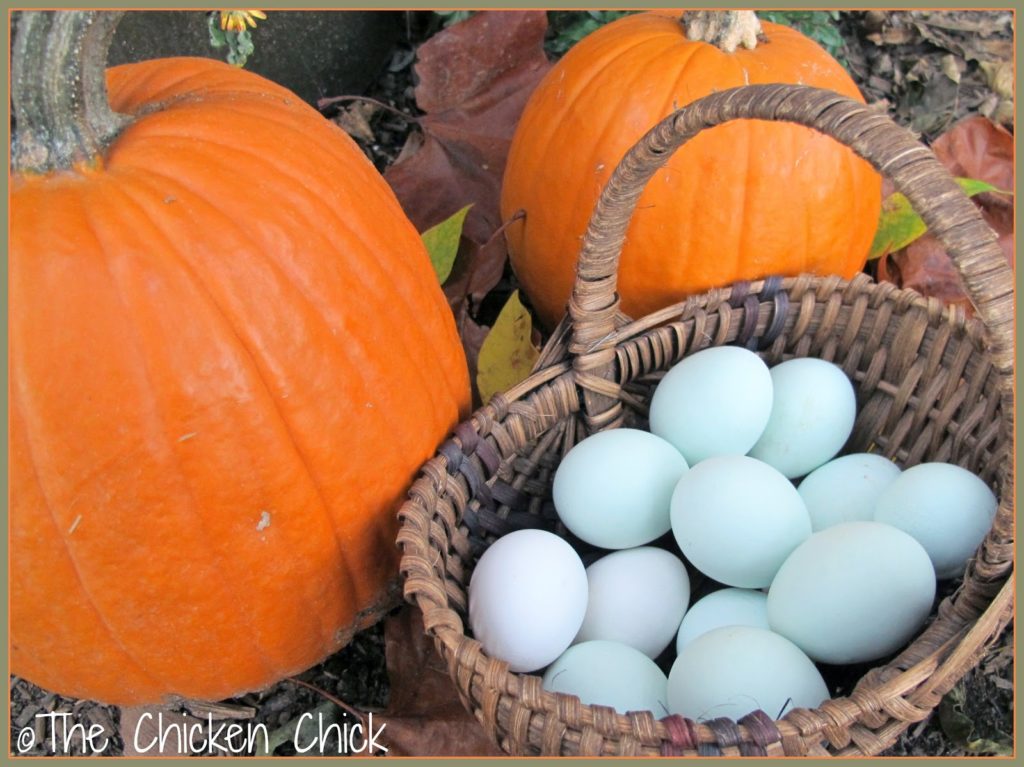
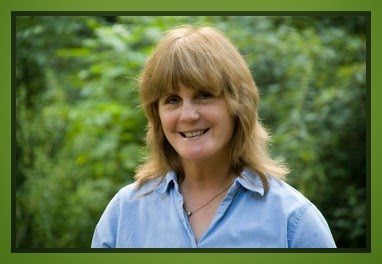
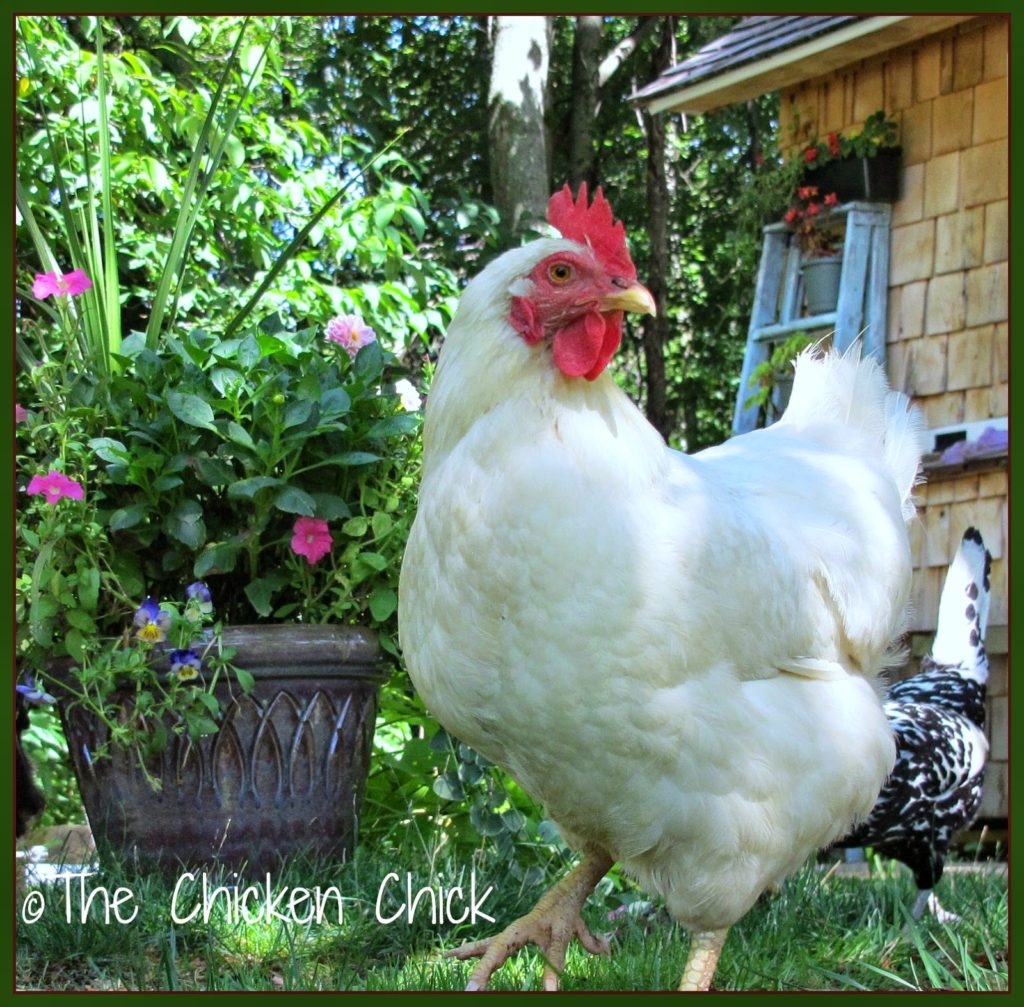
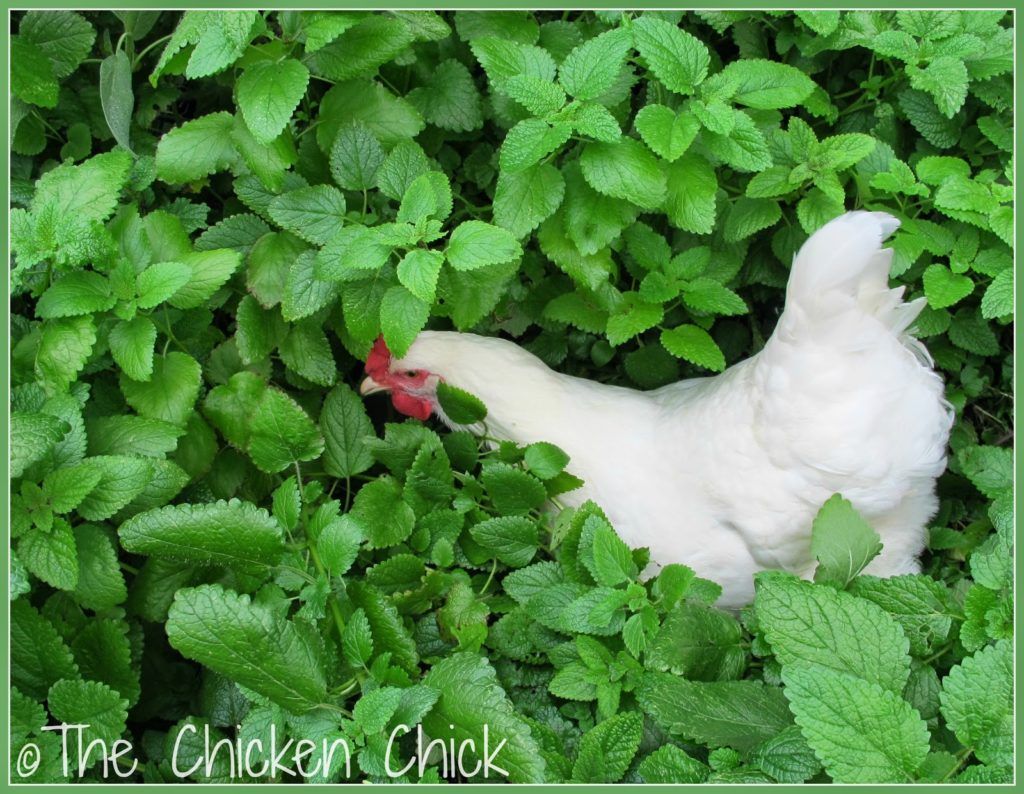
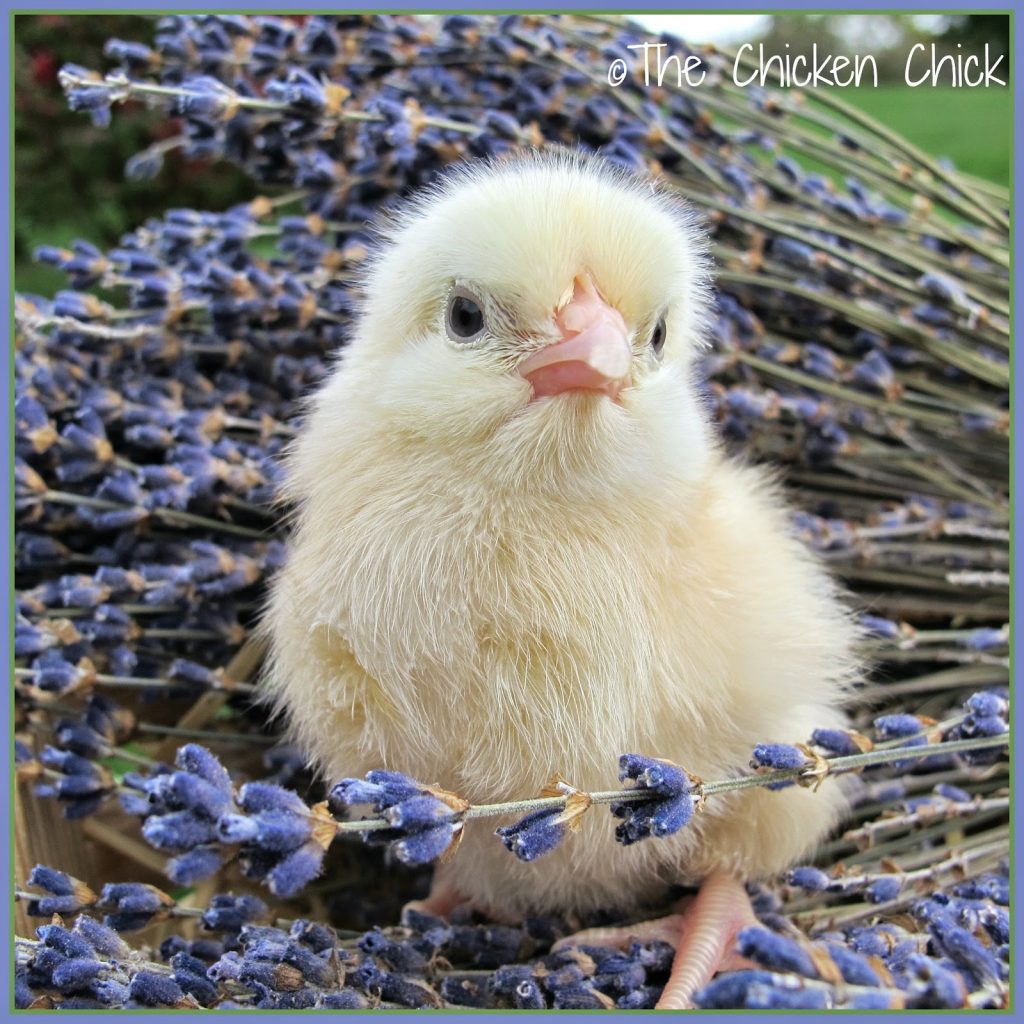
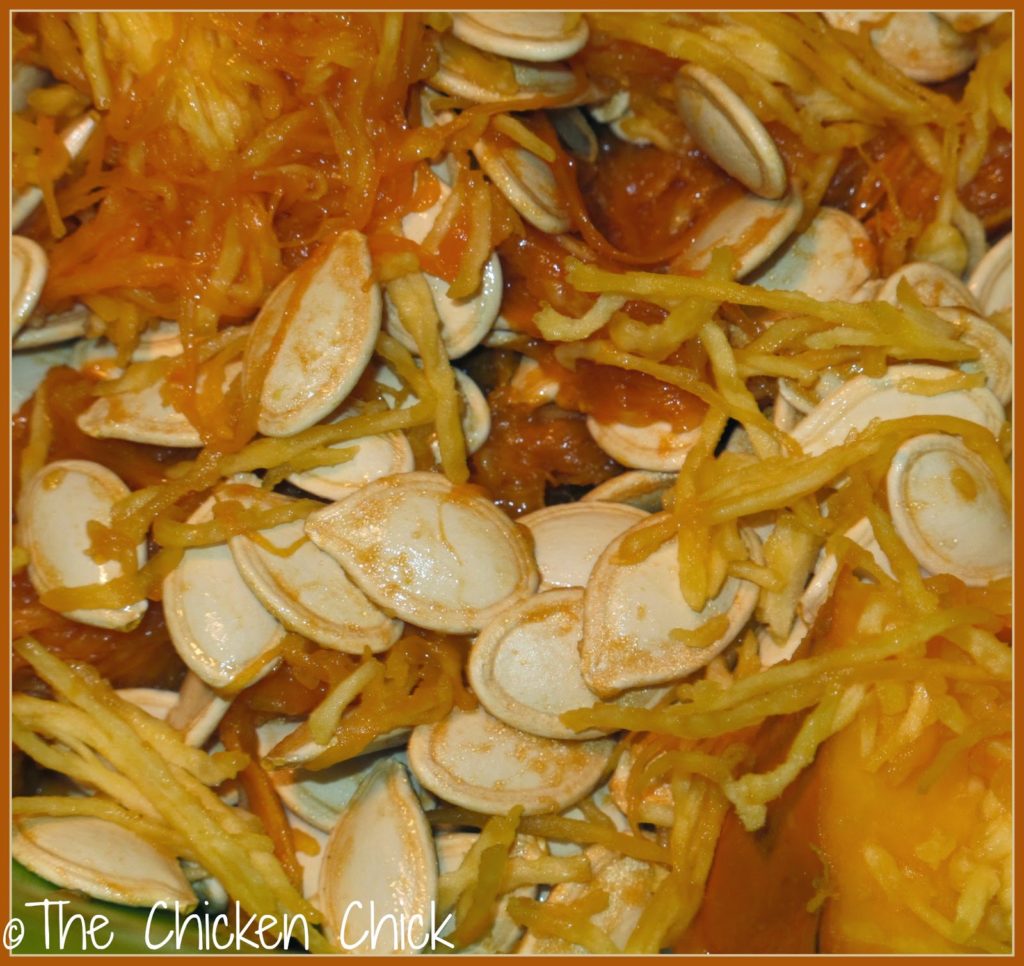
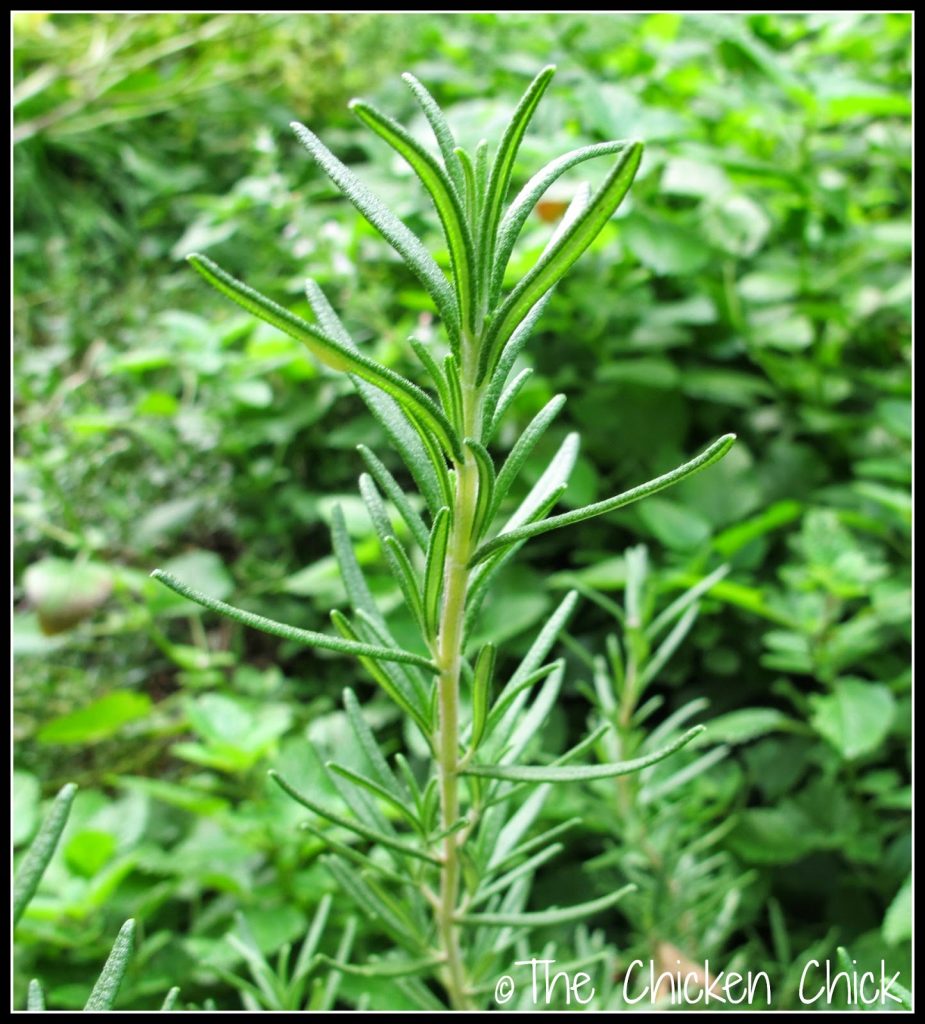
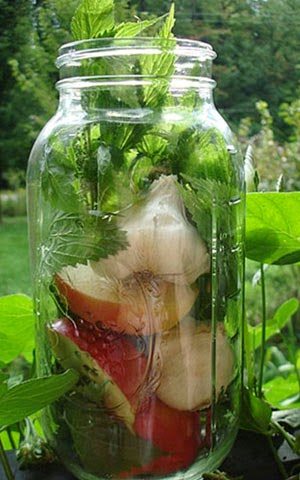
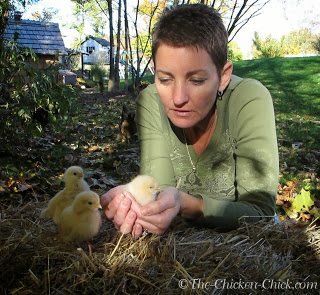













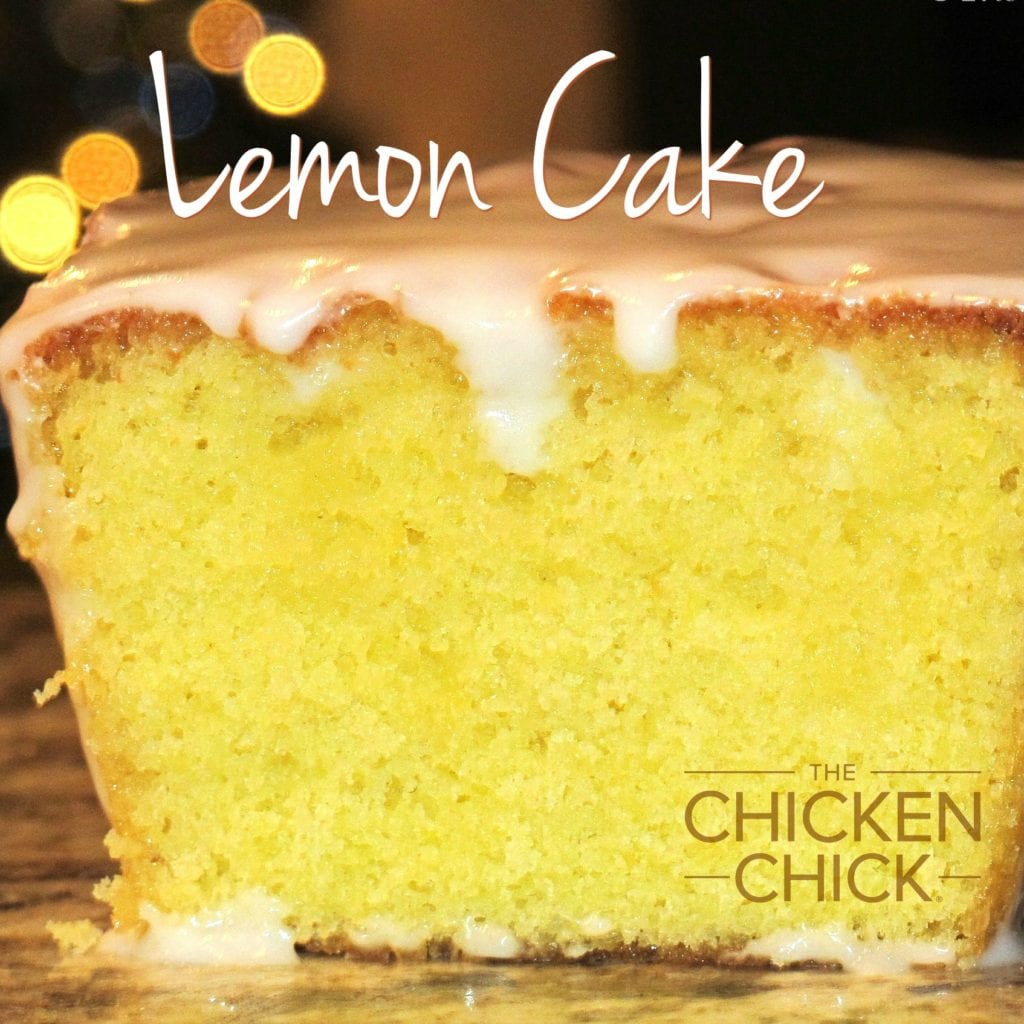
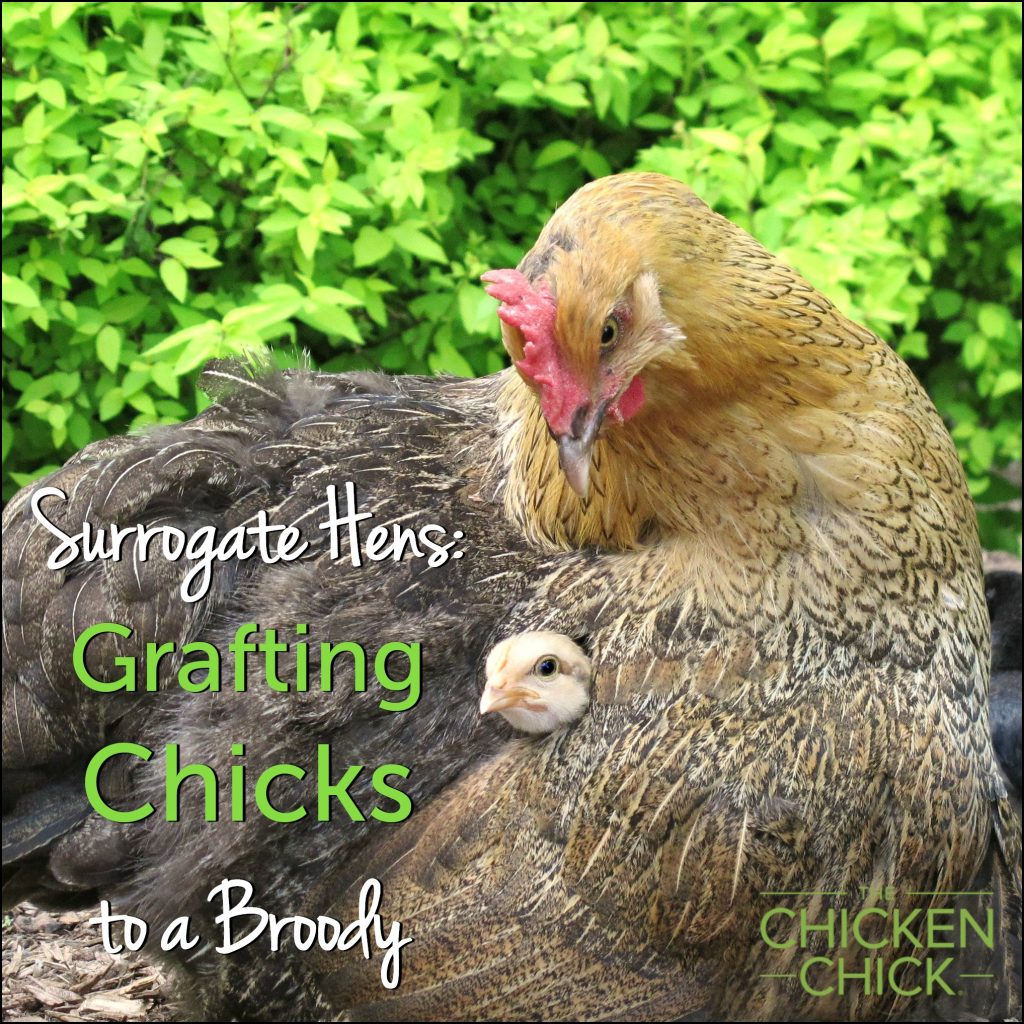
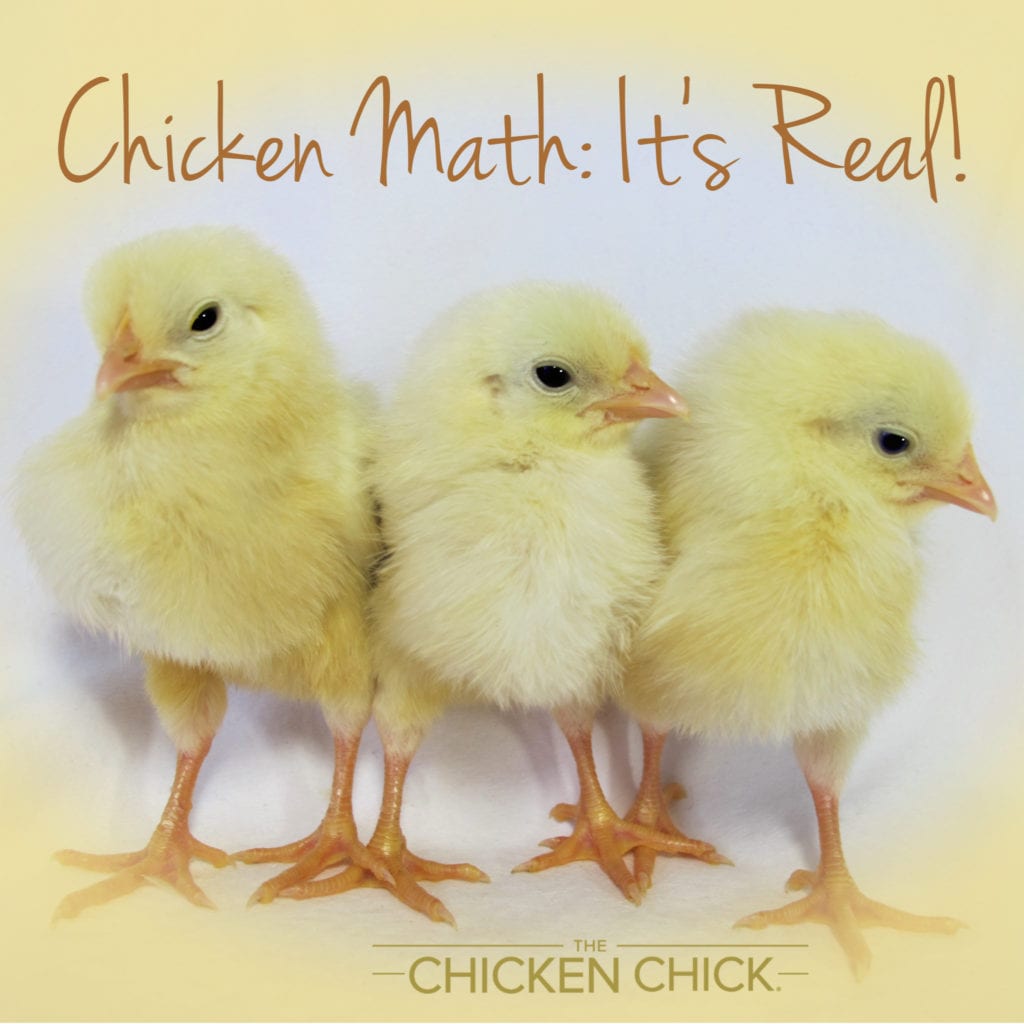









Good information, but the issue of “wormers” is still as clear as mud for me…
Stick with herbs and keep an eye on their droppings?
Or administer a product every few months as prophylaxis, regardless?
Do you have any experience or opinion on DBC Ag Products Backyard Chicken Zyfend A? It claims to be “natural” and no egg discard period.
Are products that advertise “intestinal health” meant to be treatment/prevention for worms?